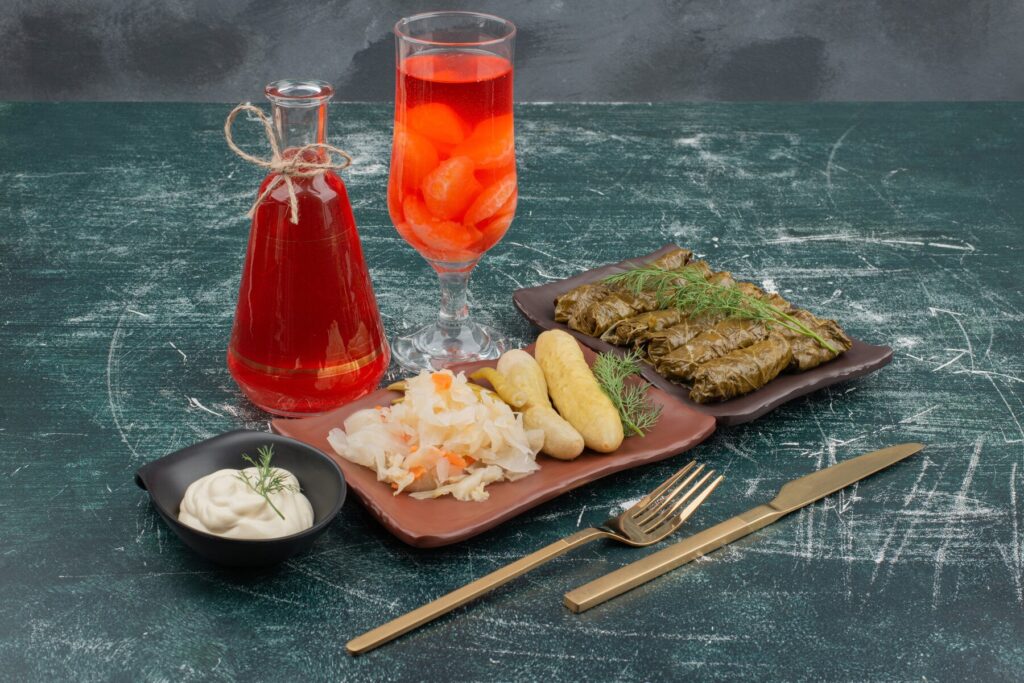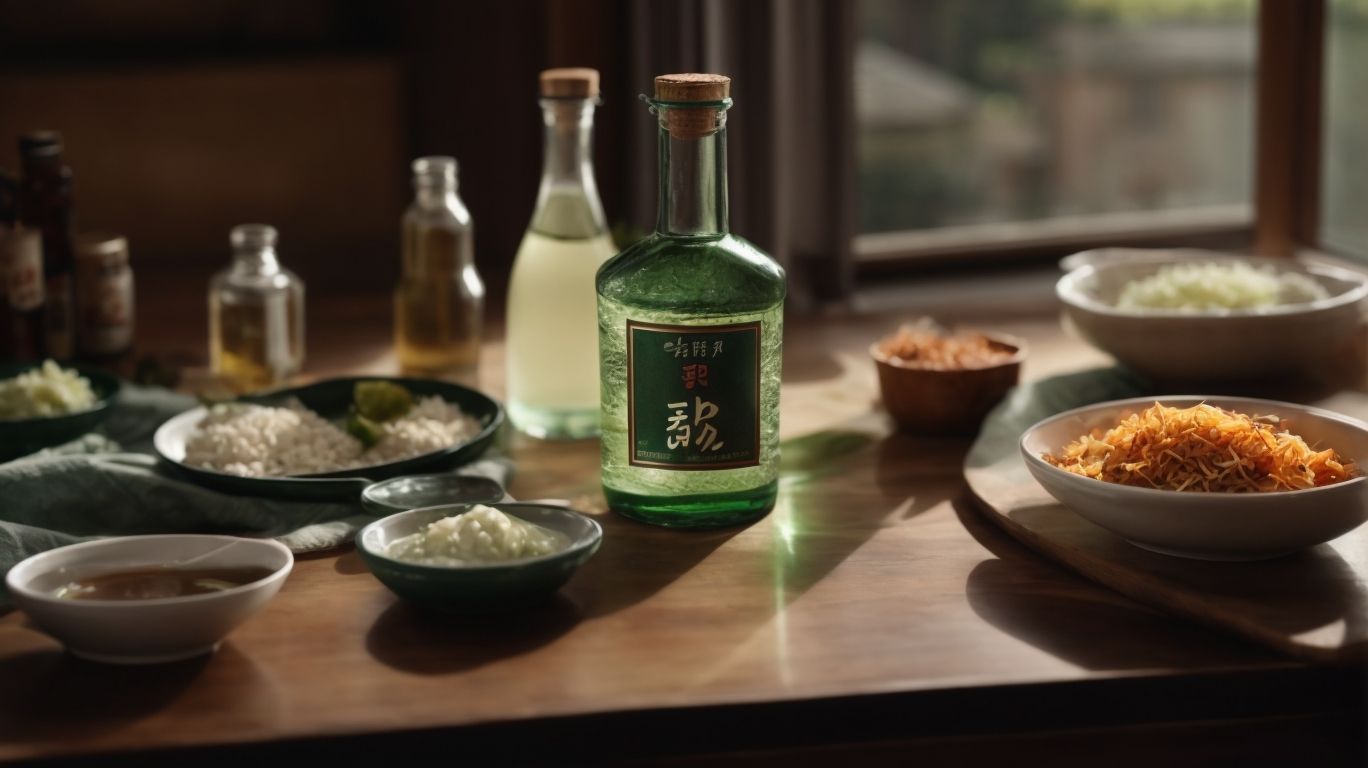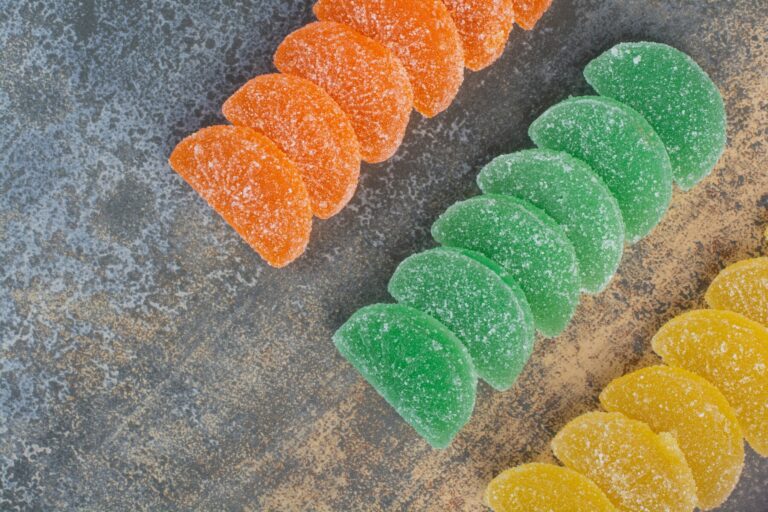is soju keto friendly
Curious about enjoying Soju while following a keto diet? This article explores the nutritional content of soju, including its carb and sugar content.
We will discuss the benefits of incorporating soju into a keto diet, such as its low carb and calorie content. We will also touch on the risks, like potential dehydration and interference with ketosis.
Stay tuned to learn how to safely include soju in your keto lifestyle!
What is Soju?
Soju, a traditional Korean alcohol, is a popular distilled spirit known for its versatile use in various cocktails and mixed drinks.
This iconic Korean drink has a rich history, dating back centuries, and holds cultural significance as an integral part of celebrations and social gatherings in Korean society. The distillation process of soju typically involves fermenting rice, barley, wheat, or sweet potatoes, resulting in a clear, colorless liquid with varying alcohol content. It is often consumed in small shot glasses, served chilled, and enjoyed alongside a variety of Korean dishes. Soju’s smooth and clean taste has made it a favorite choice for many drinkers, both in Korea and worldwide.
Is Soju Keto-Friendly?
Soju can be considered keto-friendly due to its low carb content and suitability for those following a ketogenic diet.
It’s no wonder that soju has gained popularity among individuals seeking low-carb alcoholic drinks while on a keto diet. With minimal sugar content, soju offers a light and refreshing option for those looking to enjoy a drink without deviating from their dietary goals. The versatility of soju makes it a convenient choice for mixers, allowing for creative cocktail options that align with a ketogenic lifestyle. By incorporating soju into their drinking choices, keto followers can savor a flavorful beverage without compromising their diet.

What is the nutritional content of soju?
Understanding the nutritional content of soju is essential for those looking to monitor their sugar and carb intake while enjoying this popular Korean distilled spirit.
Soju typically contains a moderate amount of sugar, with an average serving size of 1.5 ounces containing around 3 grams of sugar. In terms of carbohydrates, soju is relatively low, usually ranging from 0–4 grams per serving. This makes it a preferred choice for those watching their carbohydrate intake.
Soju is a clear, distilled liquor that is typically made from rice, barley, wheat, or sweet potatoes, resulting in a gluten-free alcoholic option for individuals with sensitivities or preferences.
How many carbs are in Soju?
Calculating the carb content in soju is crucial for individuals to manage their net carb intake and metabolic state while enjoying this distilled Korean beverage.
The carbohydrate content in soju primarily comes from the starches in the grains during the fermentation process. It’s important to consider the impact of these carbs on metabolism, as the body breaks down carbohydrates into glucose for energy.
Understanding the concept of net carbs is essential, as it accounts for the carbs that significantly impact blood sugar levels. By monitoring net carbs in soju consumption, individuals can better regulate their metabolic processes and overall health.
Learn More: 10 Keto-Friendly Soju Recipes for a Low-Carb Lifestyle
Does soju contain sugar?
Exploring the sugar content in soju sheds light on its fermentation process, metabolic effects, and implications for individuals concerned about their sugar intake while consuming this Korean alcoholic beverage.
- The sugar content in soju is crucial as it directly influences the fermentation process, contributing to both taste and alcohol content. During fermentation, yeast breaks down sugars present in the base ingredients, like rice or barley, to produce alcohol. Understanding this process is key to appreciating the complex flavors of soju.
- The impact of sugar on the body’s metabolic processes cannot be ignored, as excessive sugar consumption can lead to disruptions in metabolic functions, potentially affecting overall health and well-being.
What are the benefits of drinking soju on a keto diet?
Incorporating soju into a keto diet may offer benefits such as aiding in weight loss and supporting overall health goals for individuals following this low-carb dietary approach.
One of the key advantages of consuming soju on a keto diet is its low carbohydrate content, making it a suitable alcoholic choice for those aiming to stay in ketosis. Soju is often lower in calories compared to other alcoholic beverages, which can potentially support weight management efforts. Soju is a clear liquor that is typically free from added sugars, making it a preferable option for individuals looking to minimize their sugar intake while on a keto diet.
This clean, crisp liquor can also be enjoyed in moderation as part of a balanced approach to alcohol consumption while on the ketogenic diet.
Low-carb content
The low carb content of soju makes it a suitable choice for individuals seeking keto-friendly alcohol options that align with their nutritional goals and dietary preferences.
Given that soju typically contains around 1-3 grams of carbohydrates per serving, it is significantly lower in carbs compared to many other alcoholic beverages like beer or cocktails. This makes it a favorable choice for those following a low-carb or keto diet, where monitoring carbohydrate intake is crucial for maintaining ketosis.
By opting for soju, individuals can enjoy a drink without worrying about consuming excessive carbs, allowing them to stay on track with their diet and still indulge in a social drink occasionally.
Low-calorie content
The low-calorie content of soju can be beneficial for individuals on a weight loss journey or looking to maintain a specific metabolic state while enjoying alcoholic beverages.
Choosing beverages with lower calorie counts, like soju, can be a strategic way to support weight management goals without compromising on social gatherings or relaxation moments. By opting for a drink that is lower in calories, it can contribute to creating a calorie deficit, which is essential for weight loss. The impact of soju on the body’s metabolic state can be significant, as a lower calorie intake can help boost metabolism and support overall energy balance. These factors combined can make soju a favorable option for those mindful of their calorie consumption and metabolic health.
Can Help with Weight Loss
Soju’s potential to aid in weight loss can be attributed to its nutrition profile and suitability as a healthier alternative to higher-calorie alcoholic beverages.
One key factor that makes soju a favorable choice for those looking to maintain a balanced diet is its lower calorie content compared to other spirits like vodka or rum. With only about 64 calories per one-ounce serving, soju allows individuals to enjoy a drink without packing on extra pounds.
Soju is often distilled multiple times, resulting in a smoother taste that doesn’t require sugary mixers, making it a better option for those aiming to limit their overall sugar intake. Incorporating soju into your diet while focusing on nutrition and health goals can help support weight loss efforts in a sustainable way.

What are the risks of drinking soju on a keto diet?
While soju can be compatible with a keto diet, it is essential to be aware of potential risks such as dehydration and the impact on ketosis, emphasizing the importance of moderation in consumption.
Dehydration is a common concern when it comes to alcohol consumption, and soju is no exception. The diuretic effect of alcohol can lead to increased urine production, potentially causing dehydration if not enough water is consumed alongside the drink. The presence of alcohol in the body can disrupt the state of ketosis, where the body prioritizes burning fat for energy.
Excessive soju intake can hinder this process and slow down weight loss efforts on a keto diet. Therefore, practicing moderation and staying hydrated are key to enjoying soju while maintaining a healthy ketogenic lifestyle.
May Cause Dehydration
One of the risks associated with drinking soju is the potential for dehydration, which can pose health risks and impact overall hydration levels in the body.
Dehydration from consuming soju can lead to a multitude of health issues, as it significantly reduces the body’s water content. When dehydration sets in, it can cause fatigue, headaches, dizziness, and even more serious complications such as kidney problems and heatstroke. Maintaining adequate hydration levels is vital for overall health, as water is essential for proper organ function, digestion, temperature regulation, and nutrient transportation throughout the body.
Regularly monitoring hydration levels and limiting alcohol intake, including soju, are crucial steps in preventing the adverse effects of dehydration on one’s health.
Can Interfere with ketosis?
Consuming soju in excess can potentially interfere with the body’s metabolic state and disrupt ketosis, especially for individuals within the keto community aiming to maintain a specific dietary balance.
Soju, a popular alcoholic beverage, contains significant amounts of sugar and carbohydrates that can spike blood sugar levels, potentially kicking individuals out of ketosis. For those following a ketogenic diet, where the primary goal is to maintain a state of ketosis for optimal fat burning, the impact of soju consumption can be detrimental.
When the body is in ketosis, it relies on fat for fuel instead of carbohydrates; thus, the introduction of high-carb alcohol like soju can halt this fat-burning process and hinder progress towards reaching or maintaining ketosis.
How do I incorporate soju into a keto diet?
Incorporating soju into a keto diet can be done by selecting lower-carb options, limiting intake to moderate amounts, and pairing it with keto-friendly foods to maintain dietary alignment.
When choosing soju for a keto diet, opt for variants with a lower carbohydrate content to stay within the desired dietary boundaries. Moderation is key, as excessive consumption of any alcohol, including soju, can hinder ketosis. To enhance your keto experience, consider pairing your soju with keto-friendly foods like grilled chicken, seafood, or leafy green salads. By balancing your choices and being mindful of your overall carb intake, you can enjoy the occasional soju while staying on track with your keto goals.
Choose Lower Carb Options
Opting for lower carb soju variants can enhance the nutritional value of your alcohol consumption and support your dietary goals, especially in the context of a keto diet.
Choosing lower carb soju options not only allows you to enjoy your drink without straying from your dietary objectives, but it also helps in managing calorie intake. By making conscious decisions about the type of alcohol you consume, you can ensure that you are not unknowingly consuming excessive carbohydrates that might hinder your progress. Lower carb soju variants provide a balanced approach to enjoying a drink while staying mindful of your nutritional goals.
Limit Intake to Moderate Amounts
Practicing self-control and moderation in soju intake is essential for maintaining healthy drinking habits and fostering responsible consumption behaviors.
Engaging in a moderate intake of soju not only helps individuals avoid the negative effects of excessive drinking but also promotes a more balanced approach to alcohol consumption.
By being mindful of the amount of soju consumed and setting personal limits, individuals can better enjoy the social aspect of drinking without compromising their well-being.
Developing a habit of monitoring one’s alcohol intake can lead to improved overall health and well-rounded lifestyle choices, ultimately contributing to a more positive and sustainable relationship with alcohol.
Pair with Keto-Friendly Foods
Pairing soju with keto-friendly foods can enhance your dietary choices, support nutritional balance, and complement your overall diet and lifestyle.
Choosing keto-friendly foods that are low in carbs but high in healthy fats and protein, like avocados, salmon, and leafy greens, can help you stay in ketosis while enjoying a social drink like soju. By opting for keto-friendly options to pair with soju, you can indulge in a drink without derailing your diet. This allows you to enjoy a balanced lifestyle that aligns with your health and wellness goals, promoting overall satisfaction and well-being.
Frequently Asked Questions
Is soju keto-friendly?
Yes, soju can be considered keto-friendly as it is a clear alcohol made from fermented rice, barley, and wheat, which are all ingredients allowed on a keto diet.
Does soju have carbs?
Yes, soju does contain carbs, but the amount varies depending on the brand. Some brands may be as low as 0 grams of carbs per serving, while others may have up to 11 grams. It’s important to check the nutrition label before consuming.
Can I drink soju on a keto diet?
Yes, you can drink soju on a keto diet as long as you choose a brand with lower carb content and consume it in moderation.
What is the carb count of different types of soju?
The carb count of soju can vary depending on the type and brand. Regular soju typically has around 11 grams of carbs per serving, while fruit-flavored soju may have more. Some brands also offer low-carb or no-carb options.
Are there any soju flavors that are more keto friendly?
Yes, there are some soju flavors that are more keto friendly than others. Stick to plain or fruit-flavored soju without added sugars for a lower carb option.
Can I mix soju with other drinks on a keto diet?
Yes, you can mix soju with other keto-friendly drinks such as sparkling water, diet soda, or sugar-free mixers. Just be mindful of the carb content of any added ingredients.







